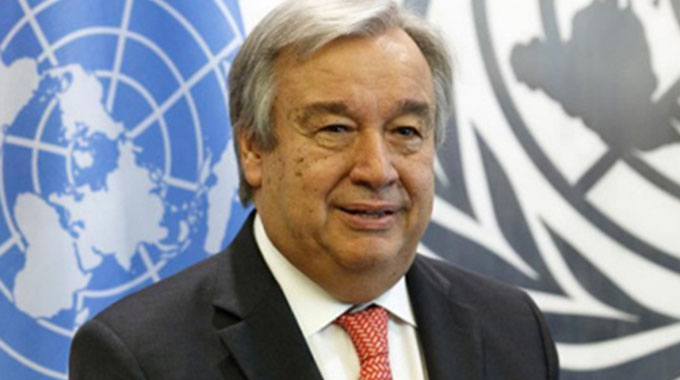Lack of basic water services in health facilities worrying

Correspondent
The WHO/UNICEF report, WASH in Health Facilities, the first ever comprehensive global assessment of water, sanitation and hygiene (WASH) shows that one in four health care facilities around the world lacks basic water services, impacting over two billion people.
It also finds that one in five health care facilities has no sanitation service, impacting 1,5 billion people. The report further reveals that many health centres lack basic facilities for hand hygiene and safe segregation and disposal of health care waste.
These services are crucial to preventing infections, reducing the spread of antimicrobial resistance and providing quality care, particularly for safe childbirth.
The United Nations secretary-general, Antonio Guterres has noted how water, sanitation and hygiene services in health facilities are the most basic requirements of infection prevention and control, and of quality care.
They are fundamental to respecting the dignity and human rights of every person who seeks health care and of health workers themselves, especially as we work to achieve the Sustainable Development Goals.
The WHO/UNICEF JMP report also found that just half — 55 per cent — of health care facilities in least developed countries (LDCs) had basic water services. It is estimated that one in five births globally takes place in LDCs, and that, each year, 17 million women in these countries give birth in health centres with inadequate water, sanitation and hygiene.
WASH services in health care facilities are of vital importance also in Zimbabwe if we are to curb maternal and neonatal mortality rates.
According to the WHO/UNICEF JMP report, basic water services are available in 81 percent of Zimbabwe’s health care facilities with no major disparity between urban and rural areas.
However, the full range of sanitation and hygiene services are not widely available in Zimbabwe. Sanitation services meeting all the definition of basic service supply are available in only four percent of health care facilities while adequate hand hygiene facilities are lacking in 10 percent of health care facilities.
As the country experiences cholera outbreaks and natural disasters, continuous efforts are essential to improve WASH services in health care facilities in Zimbabwe.
Of great concern to UNICEF and WHO is that when a baby is born in a health facility without adequate water, sanitation and hygiene, the risk of infection and death for both the mother and the baby is high.
Every birth should be supported by a safe pair of hands, washed with soap and water, using sterile equipment, in a clean environment.
Imagine giving birth or taking your sick child to a health centre with no safe water, toilets or handwashing facilities, that’s the reality for millions of people everyday. No one should have to do that, and no health worker should have to provide care in those circumstances. Ensuring that all health care facilities have basic water, sanitation and hygiene services is essential for achieving a healthier, safer, fairer world.
In an accompanying report, water, sanitation, and hygiene in health care facilities: Practical steps to achieve universal access for quality care, WHO and UNICEF researchers note that more than one million deaths each year are associated with unclean births.
Infections account for 26 percent of neonatal deaths and 11 percent of maternal mortality.
At the 2019 World Health Assembly to be held in May, governments will debate a resolution on Water, Sanitation and Hygiene in Health Care Facilities which was unanimously approved by the WHO executive board earlier this year.
The WHO and UNICEF Practical Steps report provides details on eight actions governments can take to improve the WASH services in health care facilities including establishing national plans and targets, improving infrastructure and maintenance and engaging communities.
These actions and resulting improvements in WASH services can yield dramatic returns on investment in the form of improved maternal and newborn health, preventing antimicrobial resistance, stopping disease outbreaks and improving quality of care.
Safe water, sanitation and hygiene are essential to SDG 3 “Ensuring healthy lives and promote well-being for all at all ages.”
Under SDG target 3.9, countries are working to substantially reduce the number of deaths and illnesses from hazardous chemicals and air, water and soil pollution and contamination by 2030.
Additionally, safe water, sanitation and hygiene are needed to reduce maternal mortality and to end preventable deaths of newborns and children as called for in SDG targets 3.1 and 3.2 and WASH services in health care facilities are fundamental to achieving universal health coverage (target 3.8).
According to UNICEF, 7 000 newborn babies died every day in 2017, mostly from preventable and treatable conditions including infections like sepsis. As part of its Every Child Alive Campaign, UNICEF is calling for governments and authorities to make sure every mother and baby have access to affordable, quality care.
Last year, UNICEF executive director Henrietta Fore and WHO director-general Dr Tedros Adhanom Ghebreyesus, called on countries to strengthen their primary health care systems as an essential step toward achieving universal health coverage. — Unicef.










Comments